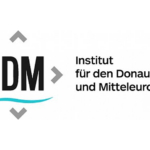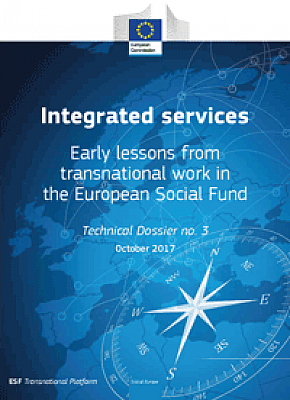MAKING PUBLIC SERVICE EFFECTIVE…FOR THE PUBLIC
In recent years, growing concern over the perceived lack of effectiveness and efficiency in many public services triggered the discussion about alternative ways of how to deliver them. Some policy areas such as youth unemployment, long-term unemployment or social exclusion particularly show the partial inability to properly address citizens’ needs through the current systems in place.
The European Social Fund (ESF) is supposed to address these challenges, amongst others, and aims at supporting innovative methods to tackle social problems like unemployment, lack of education or social exclusion. The ESF Transnational Platform now gathered the results and know-how from recent initiatives all over Europe and published a dossier “Integrated services. Early lessons from transnational work in the European Social Fund”.
The authors argue that social problems often can be considered “wicked”, as they are often caused by multiple and complex causes and sometimes may mutually reinforce each other. On the other hand, public administrations are usually organised in functionally differentiated units, which are highly specialised, but lack interconnectedness with other units. This is due to a product-dominant logic that establishes a transactional relationship with citizens.
INTEGRATED SERVICES: PLACING CITIZENS IN THE CENTER OF PUBLIC SERVICES
Most social public services are based on the principle to check on the citizen’s eligibility for a specific service first and then provide the pre-defined service. However, this approach often fails to take into account the citizens real life and the complex challenges they are facing.
Agains this background, the authors of the dossier plead for a service-dominant logic in (social) public service. Hence, the dossier reflects experiences with addressing social needs through integrated services. Integrated public services aim at a holistic perspective on social needs by establishing a central coordination of services that ensures service quality, leaves room for service customisation, increases trust between public services and clients, and facilitates process measurement that focuses on the actual effects of public services in order to learn and improve.
The dossier includes good practice examples from projects funded by the European Social Fund that show, how social public services were redesigned and how performance and efficiency were improved. Based on the project findings, the authors gathered success factors and crucial components for an effective integrated approach in different policy areas such as youth employment, poverty, discrimination and social exclusion.
LINKS
- AEIDL/ESF Transnational Platform (2017): Dossier Integrated services, Early lessons from transnational work in the European Social Fund . dossier, October 2017, European Commission (PDF, 3,4 MB)
- ESF Transnational Cooperation




